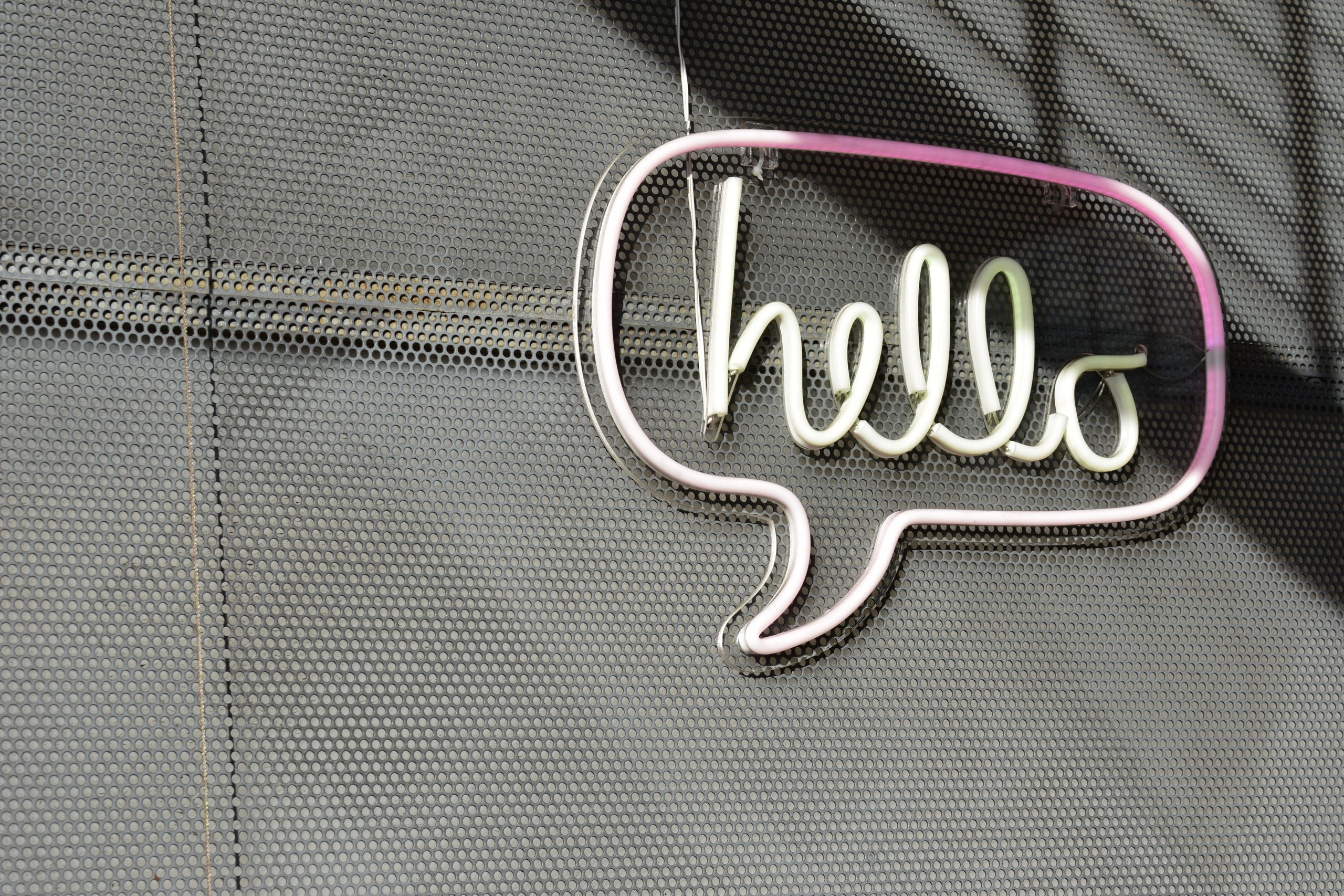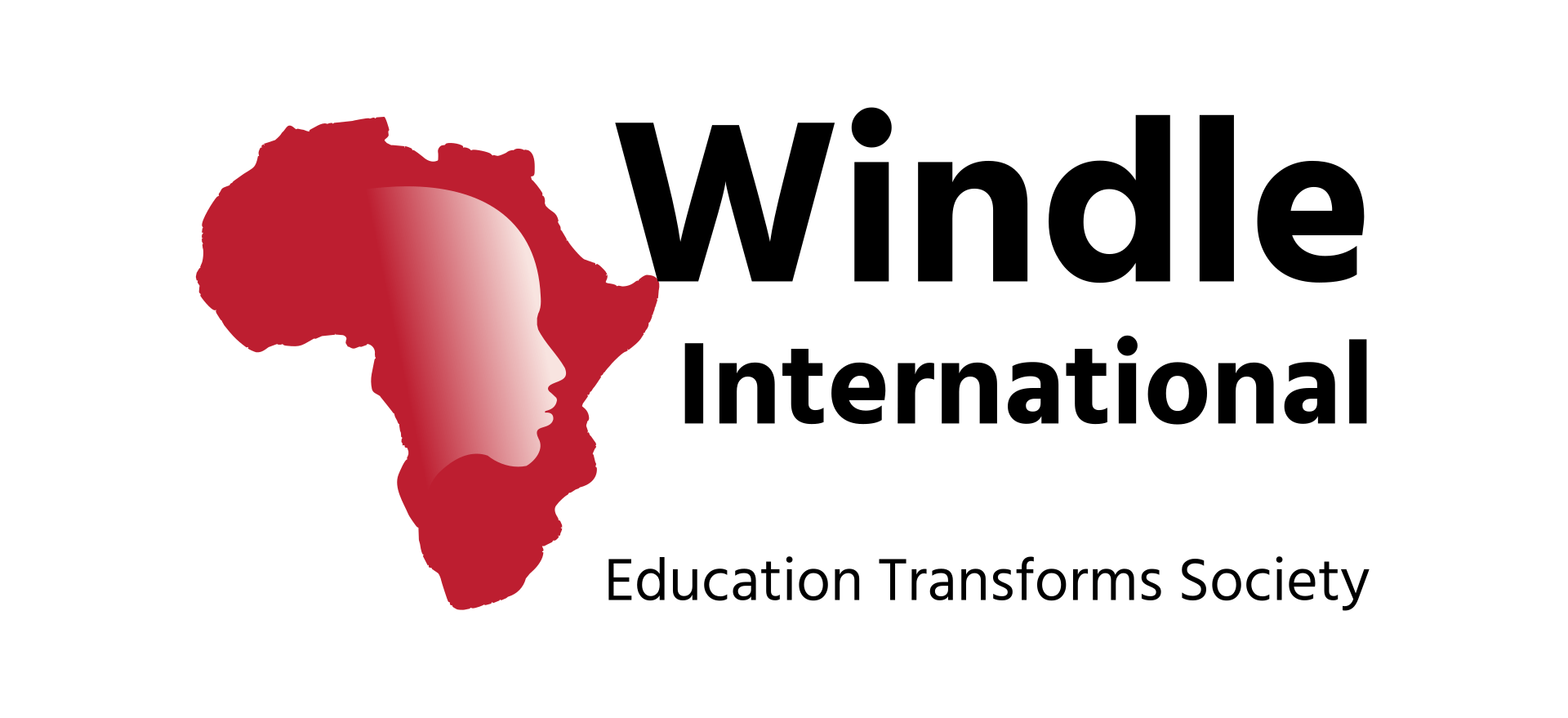Education, Peace and Development through Sport
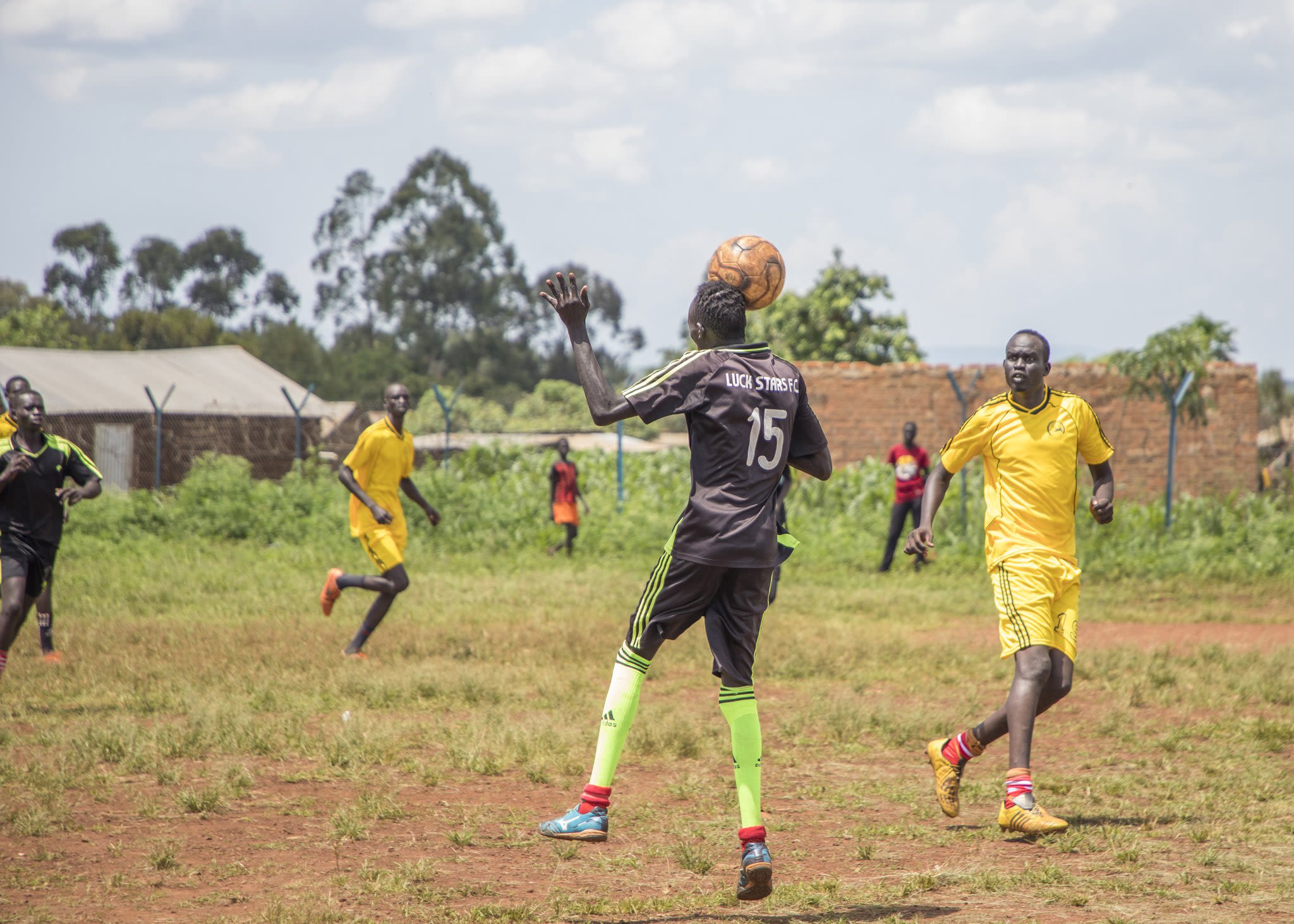
Kenya hosts over half a million* refugees and asylum seekers, the majority of whom are from Somalia, South Sudan, the Democratic Republic of the Congo, and Ethiopia.
Kakuma Refugee Camp and Kalobeyei Integrated Settlement in the north of the country are home to 40% of Kenya's refugees and asylum seekers. In these camps, children and young people suffer overcrowded living conditions, few economic opportunities, and limited access to education. Many are dealing with their experience of trauma and conflict.
For young people uprooted by war or persecution, sport is an opportunity to be included and protected, it is a chance to heal, develop and grow.
As they are transitioning to their adult life, sports in secondary schools allow young people to enhance their livelihood and career opportunities, and hope for a brighter future.
In Kenya, a Competency-Based Curriculum (CBC), developed through the national education strategy, recognises sport as a speciality and gives children and young people the tools they need to leverage their potential.
In Kakuma and Kalobeyei camps, secondary schools are public schools following the national curriculum. But as they lack resources, trained professionals and infrastructure, they do not have the capacity to fully integrate CBC and physical education for refugee students. This means that the younger generation has limited access to qualitative, participative, formal and non-formal education and development opportunities.
Many of these children and young people have incredible potential for a career in sport, which would give them an opportunity to enhance their livelihoods, and support their family and community. Due to schools not being equipped for sport and physical education, many students are unable to realise this potential.
*As at end January 2021 according to UNHCR - https://www.unhcr.org/ke/figures-at-a-glance
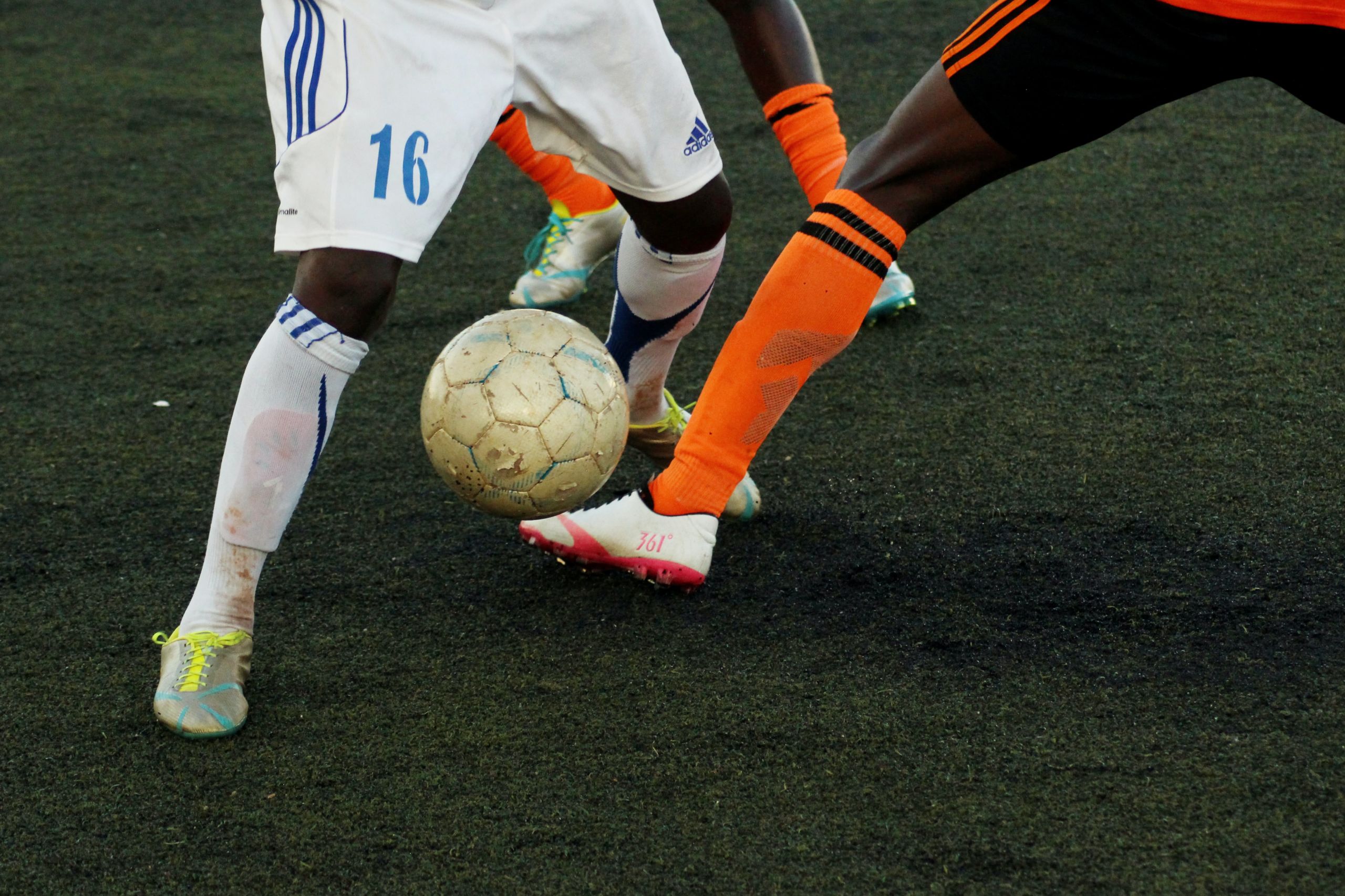
By promoting sports and physical education, the project aims to increase education for all, advance health awareness, help identify locally assessed needs, leverage youth talent, contribute to development and peace, and strengthen cooperation among communities.
The project has three main objectives:
Sports for Education
The project will ensure that all secondary school students can access sports and physical education, regardless of their gender, ethnicity or ability. It will create a safe space that will promote integration, self-confidence, and motivation to lead active lifestyles. The project will develop youths’ self-discipline, support character development, improve students’ ability to rationalise and think critically and objectively, increase the number of students staying in school for longer and their academic performance.
Sports for Peace
The project will utilize sport activities as a positive catalyst for empowering refugee communities, helping to strengthen social cohesion and forge closer ties with host communities. It will include community engagement resulting in the promotion of peace, solidarity, and respect.
Sports for Development
The project will help youths become responsible adults who are able to make informed choices about their lives and their environment through sporting activities. Youths and teachers will develop their skills, increase their career opportunities and future security. By supporting individuals’ unique skills and fostering a sense of collective endeavour and shared passion, the project will improve youths’ health and well-being through sport and physical activity.
Our Beneficiaries
The project will be implemented in 7 secondary schools in Kakuma Refugee Camp and Kalobeyei Integrated Settlement, Turkana County, Kenya.
The project will allow the 15,883 students enrolled in these schools to follow sports and physical education as part of their curriculum. They are young people aged 14-21 years old who are refugees, asylum-seekers or members of the host community. The majority are Somali or South Sudanese; around 39% are girls and women, and 2.6% live with disabilities.
The project will also enhance the coaching skills of 21 teachers and 10 social workers through training. Their skills will then be passed on to other teachers via peer education, reaching on average 100 teachers per year.
Additionally, the infrastructure of the project will be shared with primary schools, reaching an additional 52,753 children from 6 to 14 years old. The community will also make use of the project delivery by attending the inter-school competitions, liaising with local entrepreneurs and using the sports infrastructure for local club training.
Therefore, the project will indirectly reach around 91,848 people.
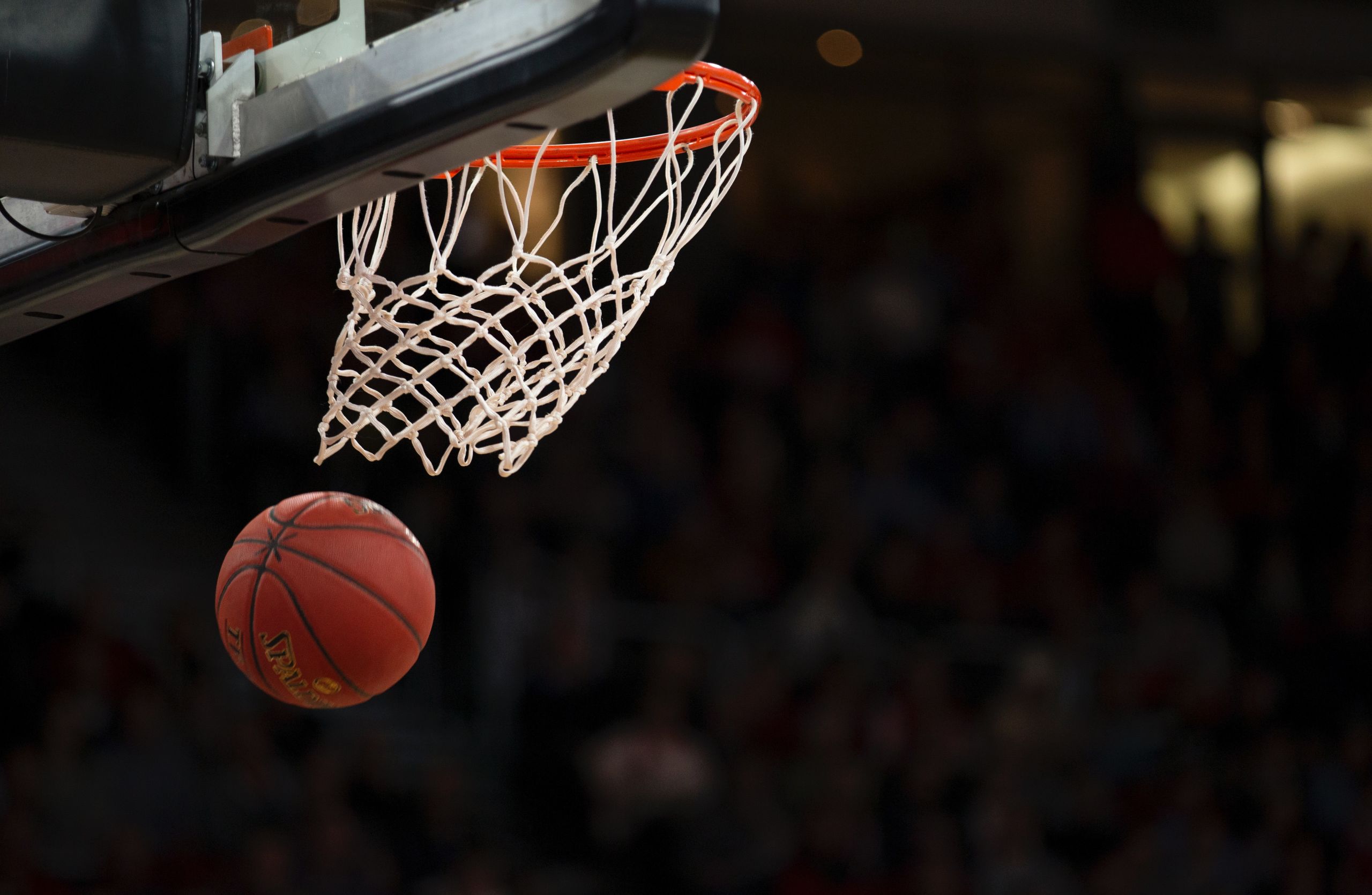
Photo by Markus Spiske on Unsplash
Photo by Markus Spiske on Unsplash
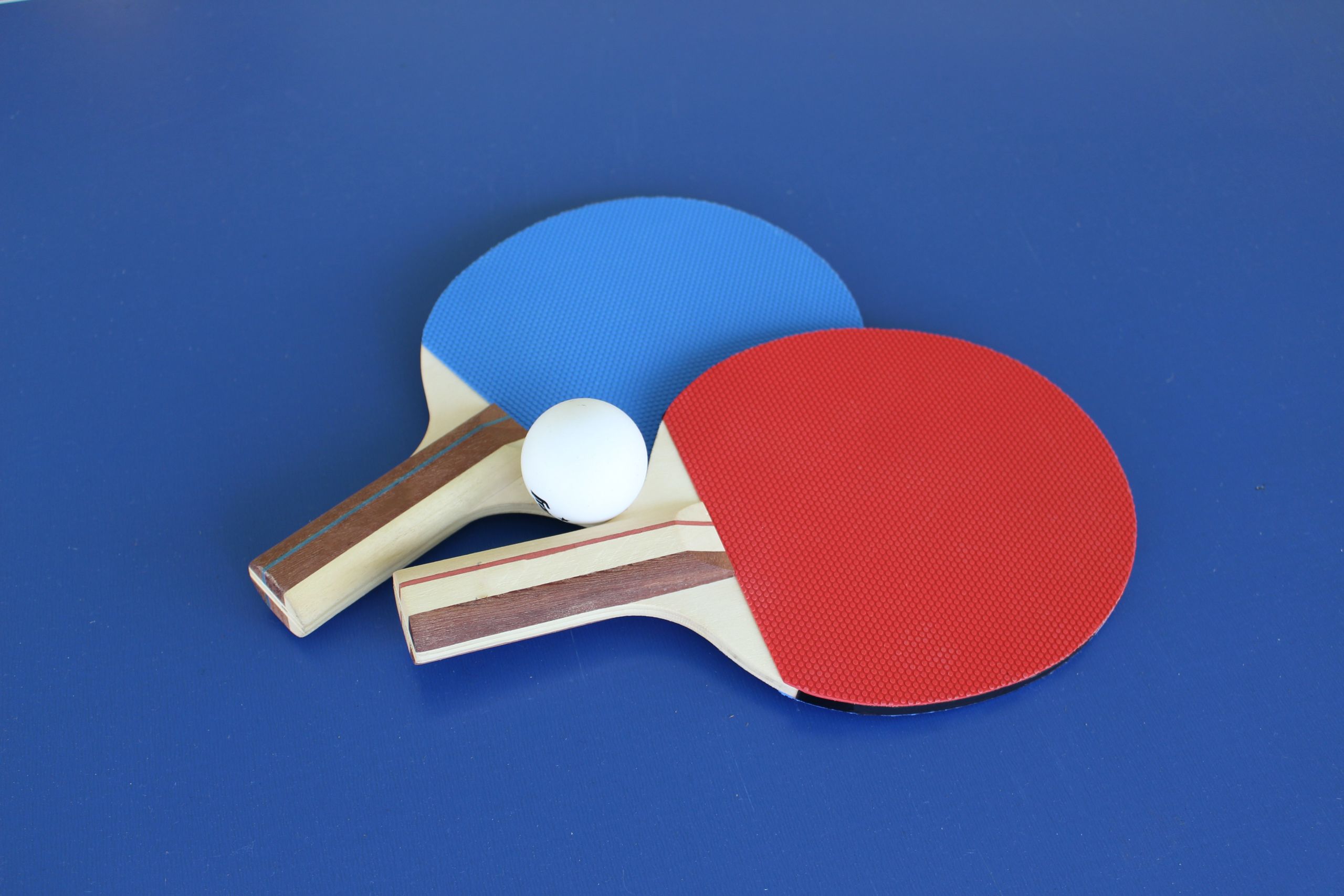
Photo by Lisa Keffer on Unsplash
Photo by Lisa Keffer on Unsplash
Our Approach
Secondary schools complying with the national curriculum
We will consult with government and other partner organizations on promoting development perspectives for youth through sports and to ensure that all refugee secondary schools comply with the national curriculum. We will create sportive infrastructure in both Kakuma and Kalobeyei camps, including football and basketball pitches which do not exist yet. We will also provide sufficient equipment to ensure the creation and training for two football, volleyball, netball and basketball teams in each secondary school.
Young people & communities working together and supporting each other
We will promote peace-building by organising of bi-annual inter-school tournaments and competitions among the villages of the camps. We will liaise with primary schools and local clubs to share the sportive places within the community. We will engage with the private sector to foster corporate social responsibility in achieving development goals, and sponsoring sportive events or students.
Resources contributing to community development, livelihoods and sustainability
We will train ‘multipliers’ such as teachers, coaches or social workers to offer quality sports-based activities that promote education, peace, violence prevention, gender equality, and health. Trained workers will be shared between schools and will serve around 5,000 children each. They will then train other teachers trough peer education. We will also facilitate the implementation of capacity-based sports curricula for talented youths, and connect them with sports clubs to enhance their careers. We will create a Sports Committee to coordinate the use of sports equipment and infrastructure among the schools, students and the community. The committee will also ensure the quality of sports and physical education and delivery in schools.
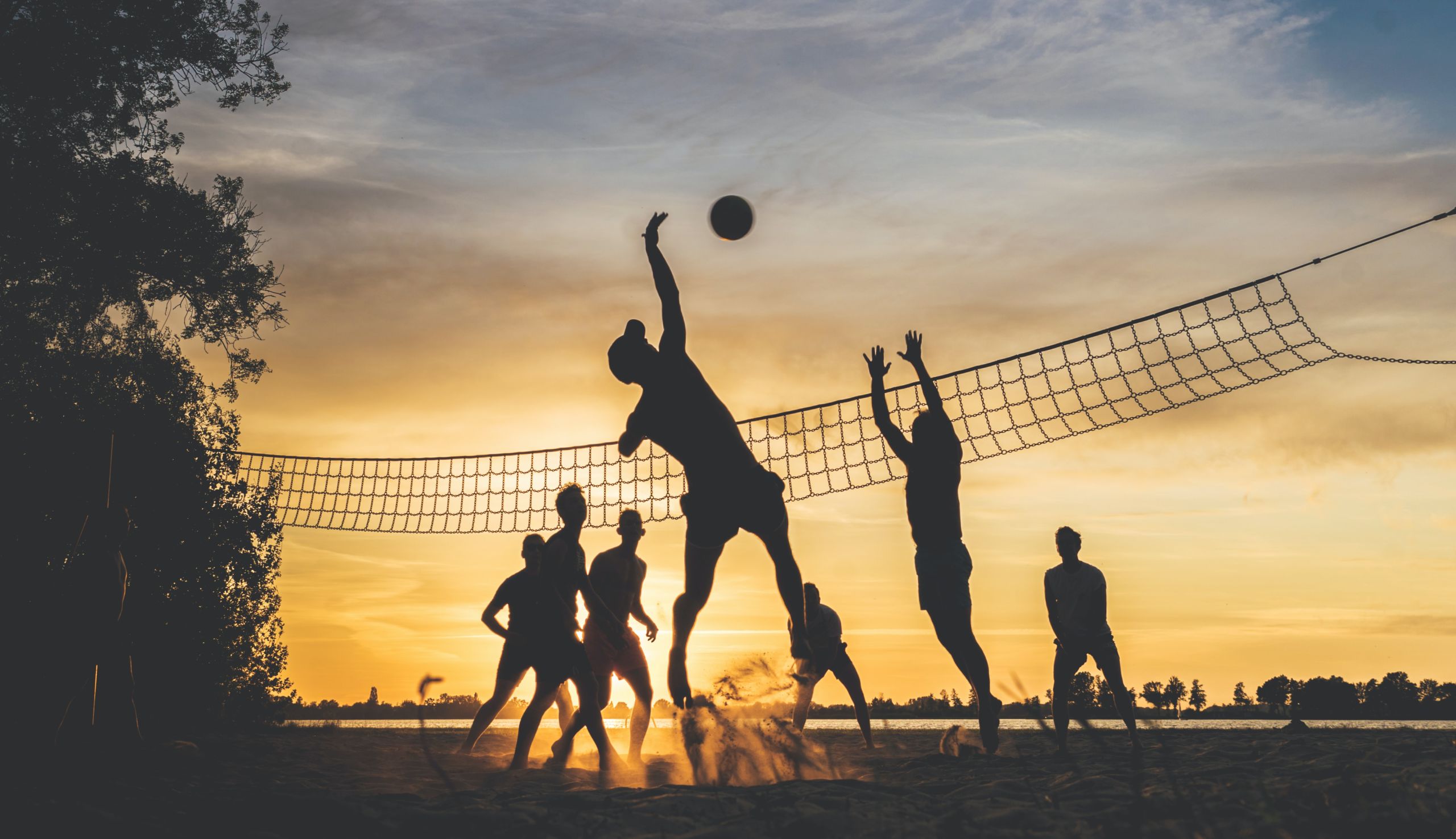
Theory of Change
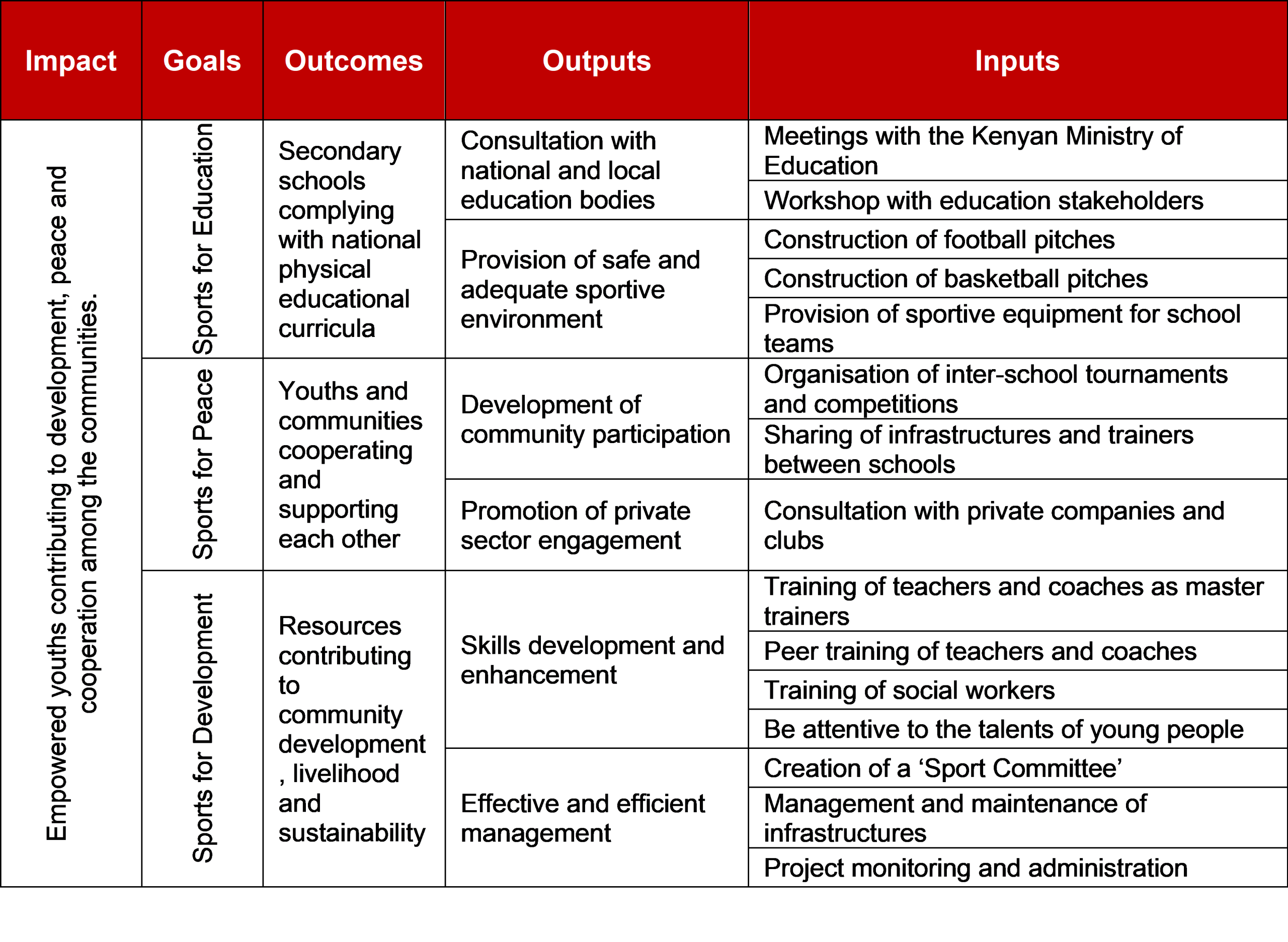
About us
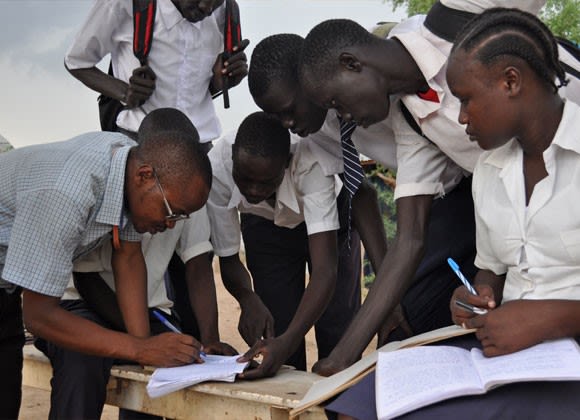
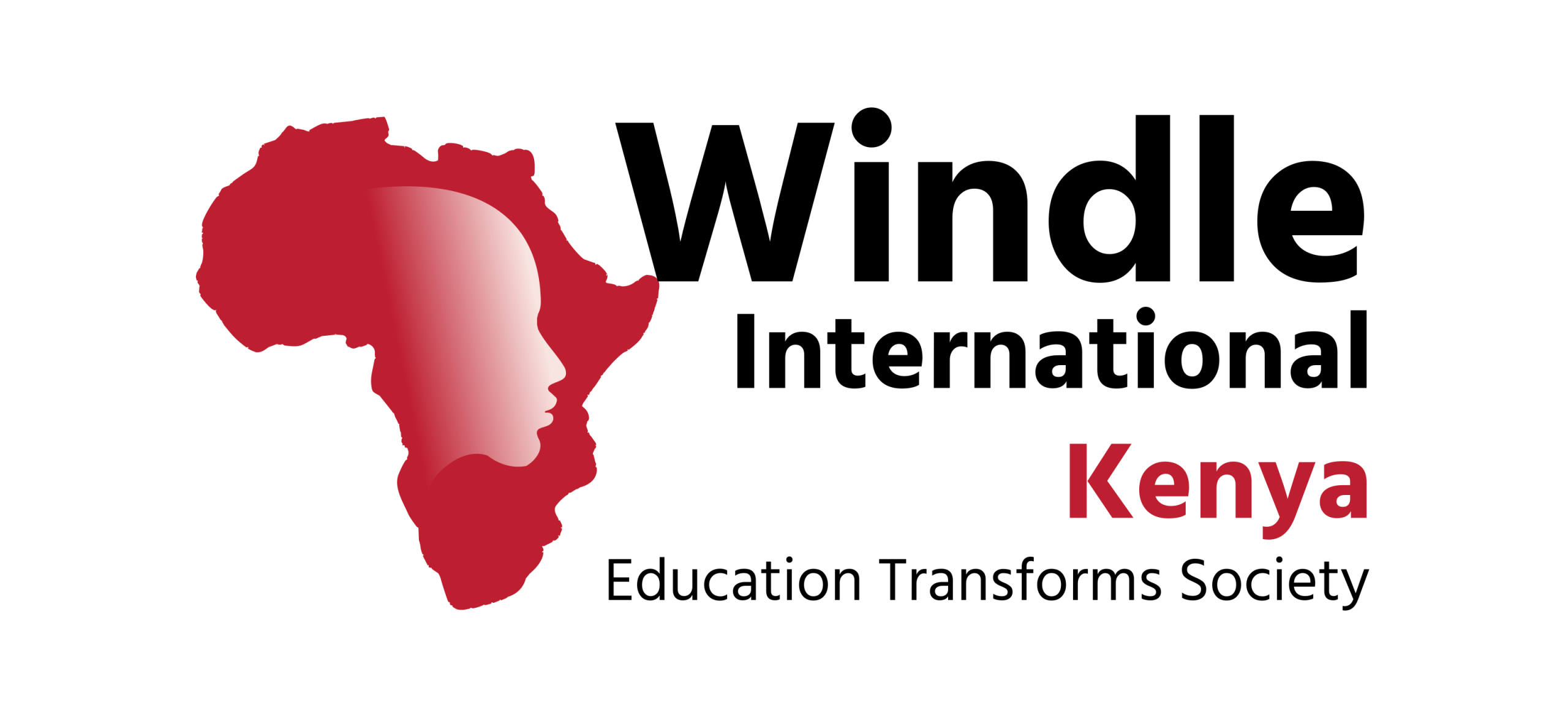
Windle International Kenya (WIK) creates lasting change and transformation in society by delivering quality education and training, advocating for and influencing education policy for refugees, the needy and conflict-affected communities in Kenya.
Our vision is a world in which everyone has the opportunity through education and training to make the most of their potential and contribute to sustainable development. Our mission is to challenge poverty and inequality, and bring about a lasting transformation of society, by expanding access to, and improving the quality of, education and training, with an emphasis on refugees, communities affected by conflict and marginalisation.
WIK manages the secondary schools of the Kakuma Refugee Camp and Kalobeyei Integrated Settlement, on behalf of the UNHCR. Since 2010, WIK has supported an average of 2,000 students to graduate secondary schools per year. WIK engages students in both curriculum and co-curriculum activities including organizing sports and cultural events in order to improve education, enhance peace-building, break the monotony of cognitively oriented learning, nurture talents, promote gender equality and health, improve important life skills such as communication, collaboration and leadership skills that boost students’ confidence and make them better placed in the labour market.
In 2018, WIK implemented the Sport for Peace initiative, supported by UNICEF, using sports and cultural activities as leverage to sustain a harmonious and peaceful living environment between refugees and the host communities.
Our approach works because of our unique and trusted position within the communities we work. We make sure that when people graduate from our programmes and interventions, whatever their academic ability, they do so with the skills and qualifications necessary to succeed. In 2018, we supported a student selection to the South Sudan female national football team as we have spotted their sportive talent. This person now has a fixed income to support their family, a durable pathway on her career and a secure status to live in a peaceful environment.
Are you interested in supporting this project?
Request the full programme proposal at:
info@windleinternational.org
